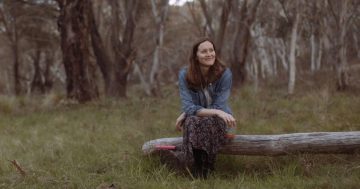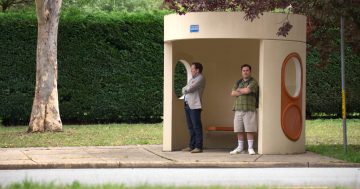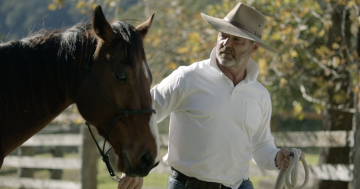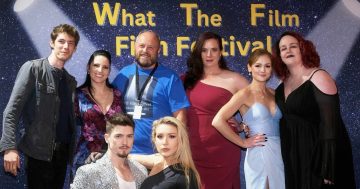
Last week, FlickerFest came to town, and if you’ve never given it a look before you should do so next time it rolls around.
Off the back of Bondi Flickerfest 2017, the touring selection of the 26th International Short Film Festival made its way to Palace Electric Cinemas as it nears the back end of its run all around the country. Sponsored by the Australian Government and Screen Australia among others, FlickerFest is the only Academy® Accredited and BAFTA recognised short film festival in Australia. As a launch-pad to international recognition, there were some 2,000+ entries this year from all over the world.
The touring program included Best of Australian, Best of International 1, Best of International 2, and Short Laughs Comedy. Wednesday night saw the screening of Best of Australian Shorts followed by festival drinks and nibbles. This reviewer attended Thursday night for the special event screening of Best of EU Shorts – a hand-picked selection of the best EU-produced shorts from the international competition, held in collaboration with the European Union Delegation in Australia.
Following addresses from FlickerFest director Bronwyn Kidd, Ambassador and Head of Delegation of the European Union to Australia Sem Fabrizi, and ACT Minister for the Arts and Community Events Gordon Ramsay, we dove into a suite of eight short films.
Garden Party from France was, more than anything, a 7 minute exposé of 3D animation craft and frogs. A comically grotesque setting in a mansion which had fallen into unkempt disrepute gave way to a denouement which clearly revealed why. Quirky and playful in the style of Minuscule.
The longest short of the night (25 mins) followed in Mindenki (Sing) from Hungary. The winner of Best Live Action Short Film at the Academy Awards this year sees Zsófi admitted to a famous children’s choir where she soon learns that individual happiness conflicts with the social harmony of toeing the party line. An interesting allegory for politics and society housed within a palatably sweet tale of childish revolt.
Il Silenzio (The Silence) from Italy/France was a clear stand-out on the night. A simple premise and only 15 mins in length – ideal for a short film – the title reflected the meditative nature of this affecting piece which reinforced the manifold struggles of refugees. Kurdish refugees in Italy, Fatma and her mother, are delivered tragic news on a trip to the doctor. However, Fatma has to translate for her mother and the responsibility weighs heavy, akin to the many excessive burdens refugees have to bear, especially children. A thought-provoking and quietly moving piece.
Playful and heady Eine Villa Mit Pinien (The Pine Tree Villa) from Germany followed. A weird trip of impressionist rotoscope-styled story-telling, it was an interesting visual experiment but felt largely indecipherable to the audience despite its fairytale qualities about self-liberation.
La Convention de Genève (The Geneva Convention) from France was an absolute highlight on the night. It reminded me of another simple short from France with something to say – Ce n’est pas un film de cowboys (This Is Not A Cowboy Film). Perfect length, perfect pacing, perfect performances and perfect soundtrack made this a hit. Hakin gets caught up in dispute between two school groups after class and the ensuing melee is one of brilliantly observed and absurd posturing all too common among impetuous and impulsive youth. The piece was a real comedic lesson in diplomacy and astutely matched the tenor of the evening.
Import from the Netherlands, like Il Silenzio before it, highlighted the isolating and difficult situations refugees can find themselves in when trying to make a new home in a foreign land. In this case, various narrative strands displaying the experiences of a Bosnian family in a small village in the Netherlands provided a disjointed cross-section of the separate daily routines of the family members, reflecting the hardships and sense of alienation refugee life can impose. Reconvening in the family home remarried the individual strands.
Va Banque (Risky Game) from Germany set up a very provocative predicament whereby a sexually precocious student, Melanie, fails a science test and in turn tries to blackmail her professor. It turns out he is not quite who he appears to be and a slightly uncomfortable although ultimately rewarding twist of just-desserts-schadenfreude ensues.
The evening wrapped up with Timecode from Spain, another recent nominee for the Academy Award for Best Live Action Short Film. A fitting finale to the evening’s proceedings, the short was in itself a surprising and endearing ode to the power of the arts. It spoke volumes about how much more there is to people’s lives than just their jobs – evidenced by those who attended Thursday evening and enjoyed the exhibition of talent, culture, art and entertainment that is FlickerFest.





















